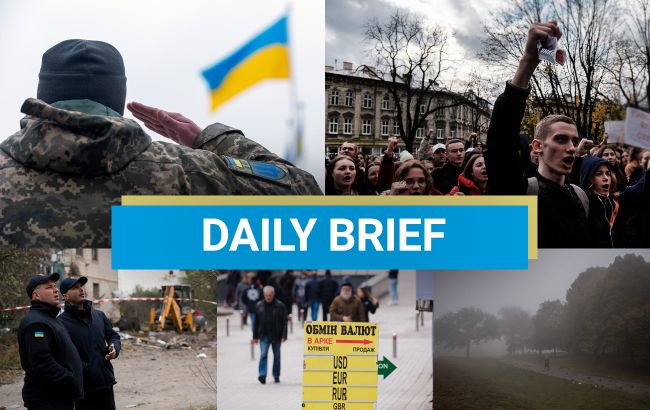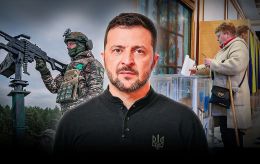Unrest in South Korea and Russia's preparations for offensive in Zaporizhzhia region - Tuesday brief
 RBC-Ukraine collage
RBC-Ukraine collage
The Russian army is preparing for offensive actions in the Zaporizhzhia region. Meanwhile, South Korean President Yun Suk Yeol declared martial law.
Read more about what happened on Tuesday, December 3.
Russia's war against Ukraine: Latest
- Russia attacks energy facility in Rivne region overnight
- Russia's capability for offensive on Zaporizhzhia, Ukrainian expert's analysis
- Zelenskyy receives frontline briefing from Ukrainian army chief
Chaos in Seoul. What is happening in South Korea and why martial law imposed
South Korean President Yoon Suk Yeol has suddenly declared martial law. Military vehicles appeared on the streets of Seoul, and under his orders, political parties' activities were suspended. Security forces entered the parliament, but the lawmakers managed to pass a resolution demanding that the president revoke the decree.
RBC-Ukraine reports on the situation in South Korea.
Ukrainian soldiers push Russian troops out of strategic Oskil bridgehead
The General Staff reports that in the Kharkiv region near the village of Novomlynsk in the Kupiansk district, Russian forces tried to secure and hold a bridgehead on the right bank of the Oskil River.
Russian troops had a numerical advantage and even attempted to cross the river.
However, with support from artillery and drone units, Ukrainian defenders pushed the enemy off the bridgehead.
Rutte responds to Zelenskyy on NATO umbrella for part of Ukraine
“So I would say more military aid and less discussions on what a peace process could look like," NATO Secretary General Mark Rutte said.
Rutte commented on Ukrainian President Volodymyr Zelenskyy's statement about NATO's umbrella for part of Ukraine's territories to end the hot phase of the war.
India abandoning Russian weapons in favor of latest US developments - Bloomberg
India has sharply reduced its orders for military equipment from Russia and is now buying more from Western suppliers. This is a significant policy shift for a country that has traditionally depended on arms from Moscow.

